What Is Referral Software?
Referral software, also known as referral marketing software, is a technology that helps organizations grow their client base and sales by leveraging the power of word-of-mouth marketing. It allows businesses to tap into their existing customer network and use it to attract new consumers, making it a low-cost and efficient approach to generate new leads and customers.
At its foundation, referral software enables businesses to develop and track referral programs in which existing customers are encouraged to suggest friends, family, and acquaintances to the company. This could take the shape of discounts, rewards, or other incentives. The software allows firms to set up these programs and track the performance of each referral, making it easy to determine the program's success.
One of the primary advantages of referral software is that it leverages the trust and relationship between a consumer and their network. When a customer refers someone to a company, it has greater weight and credibility than typical marketing efforts. This raises the likelihood of a successful conversion and may result in increased client loyalty and retention.
Referral software also automates the referral process, allowing firms to handle and track many referrals simultaneously. This saves time and resources that would otherwise be used to manually manage referral programs. Furthermore, referral software generally includes social sharing tools, making it easy for clients to share their referral link on social media networks.
This can increase the reach of the referral program and result in more effective conversions. When choosing referral software for your business, look for features like personalized referral programs, integration with your existing CRM, automated tracking and reporting, and social sharing options. Some referral software may include extra functions like email marketing and analytics.
What Are The Recent Trends In Referral Software?
Referral software has grown in popularity in recent years because of its potential to help businesses acquire and retain customers. In today's digital age, word-of-mouth marketing is more potent than ever, and referral software capitalizes on this by attracting new clients through social networks and online communities. One of the most recent trends in referral software is a move toward automation and connection with other marketing tools.
With the proliferation of customer relationship management (CRM) software and marketing automation platforms, referral software companies are increasingly providing seamless connection to automate the referral process and measure its influence on overall marketing efforts. Another development is the incorporation of artificial intelligence (AI) and machine learning in referral software.
These tools can forecast customer behavior and identify possible referrers, making referrals more targeted and effective. AI can also aid with tailoring referral messages and incentives, which increases the likelihood of successful conversions. Gamification is becoming increasingly popular among referral software suppliers.
Businesses can encourage customers to recommend their products or services to others by introducing game-like elements such as points, badges, and leaderboards. This not only enhances the referral process, but it also encourages repeat referrals from delighted consumers. Furthermore, referral software is also including social sharing tools to make it easier for clients to suggest via social networking sites.
This enables businesses to use social media's vast reach and expand their referral network beyond traditional channels. Another noteworthy development is the increase in mobile-first referral software. With the bulk of internet users accessing the internet via smartphones, referral software companies are building mobile-friendly solutions to meet this growing need. Finally, referral software is increasingly data-driven.
Businesses that manage and analyze referral data can receive significant insights into their client base and the performance of their referral program. Businesses can optimize their referral strategy using data-driven measures such as conversion rates, client lifetime value, and return on investment (ROI).
Benefits Of Using Referral Software
Referral software is a strong tool that can assist organizations of any size. This program, designed to automate and track the referral acquisition process, provides various benefits that make it a must-have for every forward-thinking firm.
Let's look more closely at the advantages of employing referral software and how it might improve your referral marketing efforts.
1. Increases Referral Rates: One of the most important advantages of using referral software is the ability to increase referral rates. By automating the process, the software makes it easier for clients to refer friends and family to your company. Customers can easily share your products or services with their contacts, boosting your chances of receiving high-quality referrals.
2. Enhances Tracking And Reporting: Keeping track of referrals manually can be laborious and time-consuming. Referral software simplifies the process by offering a consolidated platform for tracking and monitoring all recommendations. Businesses may obtain real-time data on referrals, leads, and conversions, allowing them to make data-driven referral strategy improvements.
3. Promotes Trust And Credibility: Word-of-mouth marketing, which includes referrals, is considered one of the most effective forms of promotion. Referral software allows delighted consumers to easily share their great experiences with others. This not only increases trust and credibility in your brand, but it also helps you grow your consumer base.
4. Saves Time And Resources: Manual referral tracking and management can be time-consuming and labor costly. Businesses can use referral software to automate the majority of the referral process, saving time and money. This allows businesses to focus on other important areas of their operations while the software handles their referral marketing efforts.
5. Targeted Referrals: Referral software enables firms to tailor their referral programs to specific parts of their consumer base. This means companies may customize their offers, incentives, and messaging to meet the interests and needs of various clients. This focused strategy can result in improved conversion rates and a greater return on investment.
6. Cost-eEfective Marketing: Traditional advertising and marketing strategies can be expensive, particularly for small enterprises with limited resources. Referral software provides a cost-effective option by leveraging delighted consumers as brand ambassadors. This can dramatically lower customer acquisition expenditures while increasing your company's reach.
7. Creates A Community Of Brand Advocates. Businesses can use referral software to build a community of loyal customers who will promote their brand. These delighted consumers can suggest others and become repeat customers, allowing businesses to build long-term relationships and increase customer retention.
Important Factors To Consider While Purchasing Referral Software?
When it comes to acquiring referral software for your business, you should keep a few essential aspects in mind to make an informed purchase. These variables will not only assist you in selecting the best software for your individual requirements, but will also ensure that you maximize your investment.
Here are some crucial variables to consider:
1. Compatibility With Your Existing Systems: One of the first things to evaluate is whether the referral software works with your existing systems and processes. This includes your CRM, email marketing platform, and any other tools you employ for customer management. To avoid disruptions and unnecessary labor, consider software that integrates seamlessly with these systems.
2. User-Friendly Interface: The software's usability is also an important consideration. The easier it is to use, the more likely your team members will accept it and take advantage of its capabilities. This features a clean and straightforward design that is simple to navigate and understand.
3. Customization And Flexibility: No two organizations are alike, therefore it's critical to select referral software that can be tailored to your specific requirements. This includes the ability to develop various sorts of referral programs, tailor rewards, and track and analyze data in a way that is appropriate for your organization.
4. Security And Privacy: When dealing with consumer information, security should be the primary priority. Make certain that the referral software you chose has enough encryption, data protection, and confidentiality mechanisms in place to protect both your company and your customers' privacy.
5. Customer Support And Training: Implementing new software can be a learning experience for your team, so selecting a provider with strong customer assistance and training options is critical. To ensure a smooth and effective implementation, choose software that has detailed documentation, tutorials, and prompt customer service.
6. Pricing And Scalability: Finally, assess the total cost of the referral software and whether it fits within your budget. Consider the future expansion of your company and whether the software is scalable enough to meet your demands as you expand.
By keeping these aspects in mind, you can make an informed decision and select the best referral software to help you optimize client recommendations and grow your business. Remember to conduct extensive study and compare many solutions to choose the greatest fit for your specific needs and goals.
What Are The Key Features To Look For In Referral Software?
Referral software is an effective tool for firms trying to increase sales and attract new consumers through word-of-mouth marketing. With so many options on the market, it can be difficult for customers to evaluate which referral software is best for their business.
To assist you in making an informed decision, below are the essential things to look for when selecting referral software:
1. User-Friendly Referral Campaigns: Look for referral software that makes it simple and convenient for your consumers to suggest others. The more simple the recommendation procedure, the more likely your consumers are to join and spread the word about your brand.
2. Customizable Referral Options: Because each business has distinct demands and requirements, use referral software that allows you to tailor your referral program to meet your individual objectives. This provides options such as providing different rewards for different referral activities, specifying referral expiration dates, and building several referral campaigns.
3. Mobile Compatibility: In today's digital age, it is critical to have referral software that is mobile friendly. This ensures that your clients may simply suggest your brand at any time, from any location, and on any device, improving the likelihood of successful referrals.
4. Integration With Your Existing Systems: Choose referral software that works easily with your existing marketing and sales systems, such as CRM and email marketing platforms. This allows you to efficiently track and manage your referrals without having to switch between several systems.
5. Analytics And Reporting: The ideal referral software should include comprehensive analytics and reporting capabilities. This will allow you to assess the success of your referral campaigns, monitor the work of your advocates, and make data-driven decisions to improve your referral tactics.
6. Fraud Identification And Prevention: Referral fraud is a common problem that can hurt your company's reputation and profits. To secure your organization, use referral software that includes comprehensive fraud detection and protection capabilities.
7. Customer Support: Because launching a referral program is such an important step for your organization, you'll want to have access to dependable customer service when it's needed. Look for software that provides responsive customer support via live chat, phone, and email.
By taking these essential qualities into account, you can choose the best referral software for your business, allowing you to capitalize on the power of word-of-mouth marketing and create long-term growth. It is critical to properly explore several possibilities before selecting referral software that best corresponds with your business aims and objectives.
Why Do Businesses Need Referral Software?
Referral software is an effective tool that allows firms to grow their customer base tenfold through word-of-mouth marketing. This sort of software enables businesses to set up and track referral programs in which existing customers suggest their friends and family in exchange for prizes or incentives. But why should firms use referral software?
Let's look at the main reasons why investing in referral software can help your organization.
1. Easily Capture Referrals: Referral software allows organizations to collect and track referrals. It eliminates the need for manual tracking, which is time intensive and error-prone. recommendation software allows you to streamline the recommendation process and verify that all referrals are properly recorded.
2. Cost-Effective Marketing: One of the most major benefits of employing referral software is its affordability. Traditional marketing strategies, such as advertising and cold calling, can be costly and may not necessarily produce the desired results. Referral software, on the other hand, taps into the power of satisfied customers, who are more inclined to suggest their friends and family, resulting in a high return on investment.
3. Improves Client Acquisition: Referral software can make a substantial contribution to a company's client acquisition efforts. Referral programs encourage customers to actively promote the business and bring in new customers, resulting in a consistent stream of new leads and conversions.
4. Increases Brand Advocacy: Customer loyalty and word-of-mouth marketing work in tandem. When clients are pleased with your products or services, they are more inclined to suggest you to others. Referral software enables you to incentivise and reward loyal customers for spreading the word, transforming them into brand ambassadors.
5. Trackable Results: Referral software helps organizations gain useful insights and data about their referral programs. This enables firms to evaluate the performance of their referral programs, comprehend client behavior, and make data-driven decisions to improve their marketing strategy.
6. Encourages Repeat Business: Referral software can help you not only get new consumers but also keep existing ones. Customers who refer their friends and family are more likely to become repeat customers, resulting in higher customer lifetime value and revenue.
In today's competitive market, businesses want a cost-effective and efficient method for acquiring new consumers and retaining existing ones. Referral software does exactly that, making it a vital tool for any business trying to expand and flourish. So, if you want to take your business to the next level, consider investing in referral software.
How Much Time Is Required To Implement Referral Software?
The time necessary to deploy referral software varies depending on a number of factors, including the size and complexity of your organization, the software's capabilities and customization possibilities, and the level of customisation and integration needed. On average, completely implementing referral software can take anything from a few weeks to a few months.
The first step in deploying referral software is to understand your company's goals and objectives. This will assist you in determining the features and functionalities required from the software. Next, you'll need to research and compare several referral software choices to determine which one best meets your needs and budget. After you've chosen the best referral software, the implementation procedure begins.
This often includes creating your account, personalizing the software to match your branding, and integrating it with your existing systems like your website and CRM. Depending on the intricacy of your firm, this process may take several weeks to complete. After the first setup and customisation, test the software and make any necessary changes. This is a critical step to ensure that the software runs smoothly and all features work as planned.
The testing phase may take several weeks to detect and resolve any difficulties. After the testing process is over, you can begin using the referral software to launch your referral program. This includes developing referral campaigns, tracking referral activity, and administering incentives for both referrers and referees. This procedure can take weeks or months, depending on the complexity and number of campaigns you intend to conduct.
What Is The Level Of Customization Available In Referral Software?
When it comes to referral software, one of the most important factors to consider is the extent of customisation. This refers to the capacity of organizations to customize the software to meet their own requirements and branding. A bespoke referral software creates a more personalized and seamless experience for both the business and the referred customers. In general, the extent of customization available differs per referral software vendor. Some may provide minimal customization choices, but others may provide comprehensive customization capabilities to match the specific needs of each organization.
We'll go over the many levels of customisation possible in referral software and how they might help your business.
1. Branding And Design: Referral software allows businesses to personalize the look and feel of their referral program to reflect their corporate identity. This involves adding their logo, modifying colors, and choosing a layout that is consistent with their brand guidelines. This amount of personalization contributes to a consistent and professional appearance, making the referral program more appealing to potential clients.
2. Referral Program Criteria: Another degree of customization available with referral software is the option to create particular criteria for your referral program. This tool allows organizations to customize their referral program based on their target audience and marketing objectives. Businesses, for example, can specify how many referrals are required to get a reward, establish an expiration date for the referral links, and even create tiered prizes based on the amount of referrals.
3. Communication And Messaging: Creating a tailored experience requires customizing the communication and messaging given to referred clients. Businesses can use referral software to customize emails or messages delivered to referred clients, making them feel more valued and engaged. This level of personalization can also help to maintain consistency in brand messaging, resulting in a more professional and trustworthy image.
4. Landing Pages: Some referral software providers enable businesses to design personalized landing pages for their referral programs. This implies that businesses can create their own page to promote their referral program, describing the incentives, restrictions, and other key facts. Custom landing pages are an effective way to attract potential clients' attention and persuade them to engage in the referral program.
5. Reporting And Analytics: Finally, the level of flexibility offered for reporting and analytics should be considered when selecting a referral software. Some suppliers include configurable dashboards, which allow organizations to monitor the progress and performance of their referral program in real time. Customizable reports can also provide businesses with useful insights into their referral program's performance, allowing them to make data-driven decisions for future development.
Which Industries Can Benefit The Most From Referral Software?
Referral software is an effective tool that can assist firms from a variety of industries. Whether you're a little business or a major organization, using referral software can help you grow your customer base, increase revenue, and boost overall brand awareness.
Let's explore, we'll go over which sectors can benefit the most from referral software and how it can help their business.
1. E-commerce: Referral software may be extremely useful for e-commerce businesses since it allows them to quickly track and incentivize client recommendations. E-commerce enterprises can enhance traffic and sales by offering discounts or rewards to customers who recommend friends and family to their website.
2. SaaS: Software as a Service (SaaS) businesses can also benefit substantially from referral software. With increasing competition in the SaaS industry, referral programs can help these businesses stand out and attract new clients. SaaS companies can boost customer retention by offering incentives to current customers for suggesting their network in addition to acquiring new clients.
3. Subscription-Based Services: Referral software is ideal for businesses that provide subscription-based services like online courses, streaming platforms, and food delivery. These firms can employ referral programs to encourage existing customers to refer their friends and family, resulting in a consistent stream of new members.
4. Media And Entertainment: Referral software can be a useful asset for media and entertainment organizations because it allows them to connect with their audiences' networks. Media and entertainment companies can improve their fan base and engagement by rewarding fans who refer their friends to their content.
5. Beauty And Wellness: The beauty and wellness sectors rely largely on word-of-mouth marketing, making them ideal candidates for referral software. Referral programs can help these firms use their loyal customer base to attract new consumers and enhance brand exposure, especially as social media influencers and online reviews grow in popularity.
Conclusion
To summarize, referral software can be a beneficial tool for firms seeking to improve their client acquisition and retention methods. With the capacity to automate and track word-of-mouth referrals, marketing teams may save time and effort, resulting in a higher return on investment. When selecting referral software, it is critical to evaluate your specific business requirements and objectives.
Do you need a simple software to track referrals, or do you want more advanced capabilities like social network integration or analytics? Make sure to explore and compare various pricing options to get the best option for your budget. Additionally, consider the user interface and convenience of use for both your staff and potential referrers. A bulky and confusing system may deter participation and jeopardize the viability of your referral program.
It is also recommended that you take advantage of free trials and demos offered by suppliers to gain direct experience with the program before making a selection. Overall, referral software can be a valuable asset to your marketing plan; nevertheless, it is critical to conduct research and select a reliable and appropriate source. We hope this buyer's guide has given you useful insights and thoughts for making an informed selection for your business.

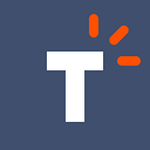
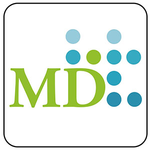




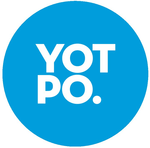






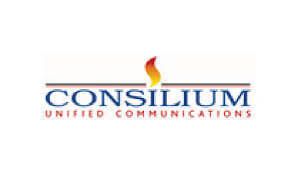

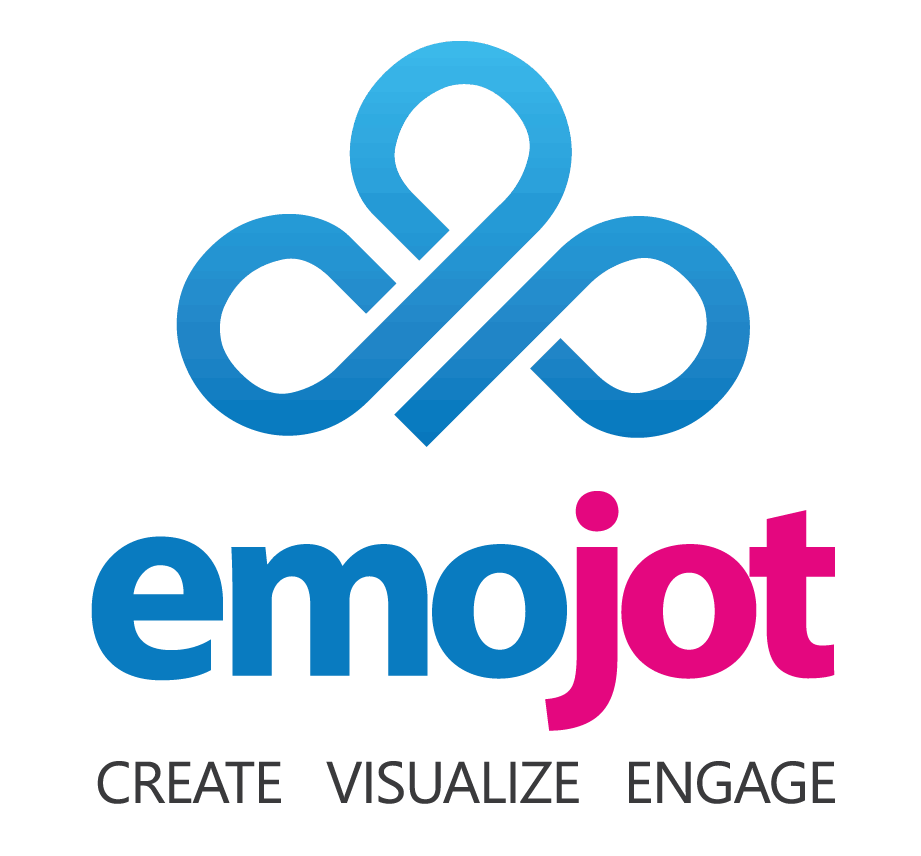
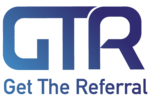




Social Seeder
Social Seeder solution for transforming your employees into brand advocates. Our user-friendly software and strategic guidance make it effortless to amplify your companys voice through authentic and shareable content. Boost engagement, reinforce recr...Read More Social Seeder